The Army has expanded its capabilities beyond serving as just a land force; Soldiers are capable of responding to missions in both the air and sea.
An example of the Army's mission capabilities can be found within the 86th Engineer Dive Team. The 86th Engineers workspace is much different from most; the small but specialized group of divers, who are currently deployed to Kuwait, spend much of their time on boats and in the water.
"We are the only dive asset the Army has in the Iraq theater of operations, to include Kuwait and the Gulf," said Staff Sgt. Weston Cox, diving supervisor, 86th Engineers.
Since 86th Engineers are the only Army dive team in theater, their days are filled with taking on assignments and training to stay mission ready.
"We're busy all the time," said Cox. "It's a big mission, it's not just Iraq, we have a mission out here in the Gulf as well, and some of the surrounding countries. We always have guys out; we've got people pretty much rotating in and out all of the time."
The members of the team are classified as both divers and engineers, many of their missions consist of supporting bridging operations, where they conduct maintenance on bridges and make sure bridging sites are safe. Other missions include reconnaissance, salvage missions, security swims, demolition missions and underwater cutting, where they use electricity and oxygen to cut through thick steel.
Due to the nature of their job, where much of the work is conducted underwater, it is important that the divers have a complete understanding of their equipment, keep up their maintenance and conduct thorough checks before each dive.
The noncommissioned officers of the detachment work closely with the junior Soldiers to make sure these steps are correct and complete.
"There are so many pieces of equipment that you need to be an expert on," said Sgt. Benjamin Lane, lead diver, 86th Engineers. "As an NCO you need to be able to teach somebody who's never seen something like a gigantic compressor, or just different pieces of equipment that not many people know exist, how to maintain it, repair it and know how to use it. It's fun though and keeps you busy."
Although the NCOs have a big responsibility in teaching their Soldiers and making sure that each dive is safe, most of those who enter this field are given a solid base in understanding their job to begin with.
"We are a small team, it's very specialized and these guys work very hard to get here," said Cox.
After completing basic training those who are going into the dive field must go through a three-week, phase one dive training.
During the phase one training, recruits learn to become comfortable in the water, understand simple dive physics and human biology.
The training also incorporates a lot of running and physical conditioning to help prepare future divers for phase two training where they are sent to the Navy Dive Training Center in Panama City, Fla.
Phase two training is about six months long and consists of physics, learning the different dive systems and learning how to work under water.
But one of the most important skills that any diver must have is to be self-motivated.
"To want to be the best is the best way to become an Army diver," said Lane. "Thrive on motivation and do your best work possible, and no one can say that you did something wrong for that."
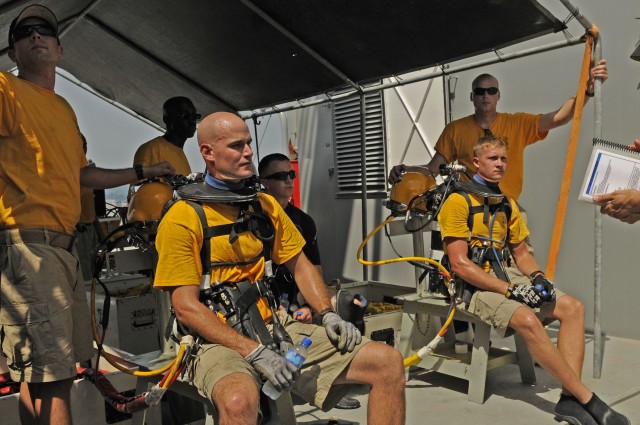
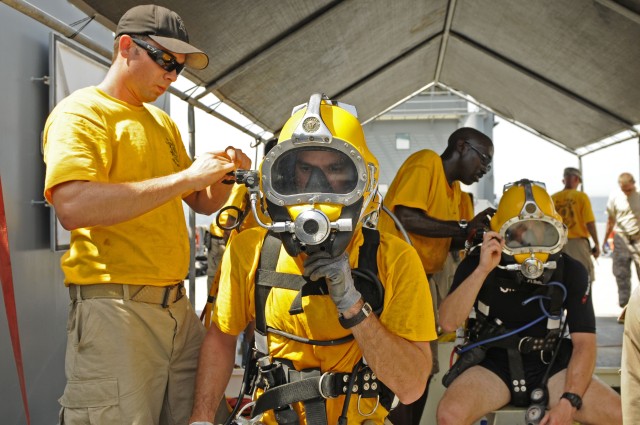
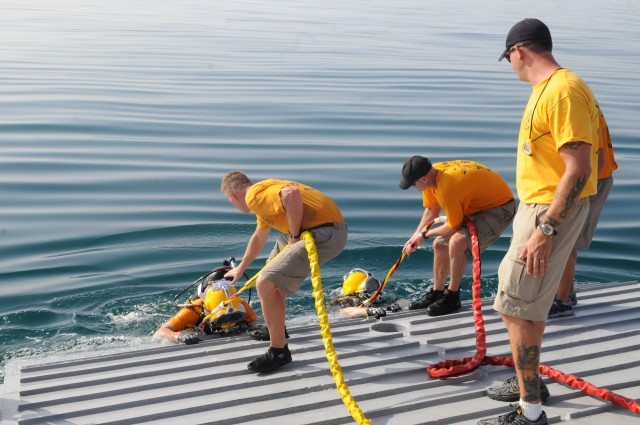
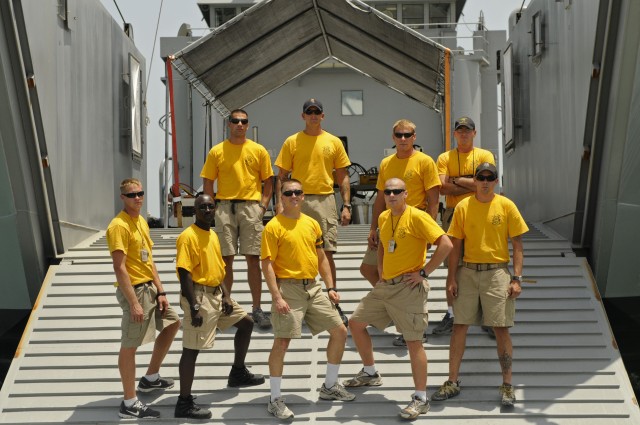
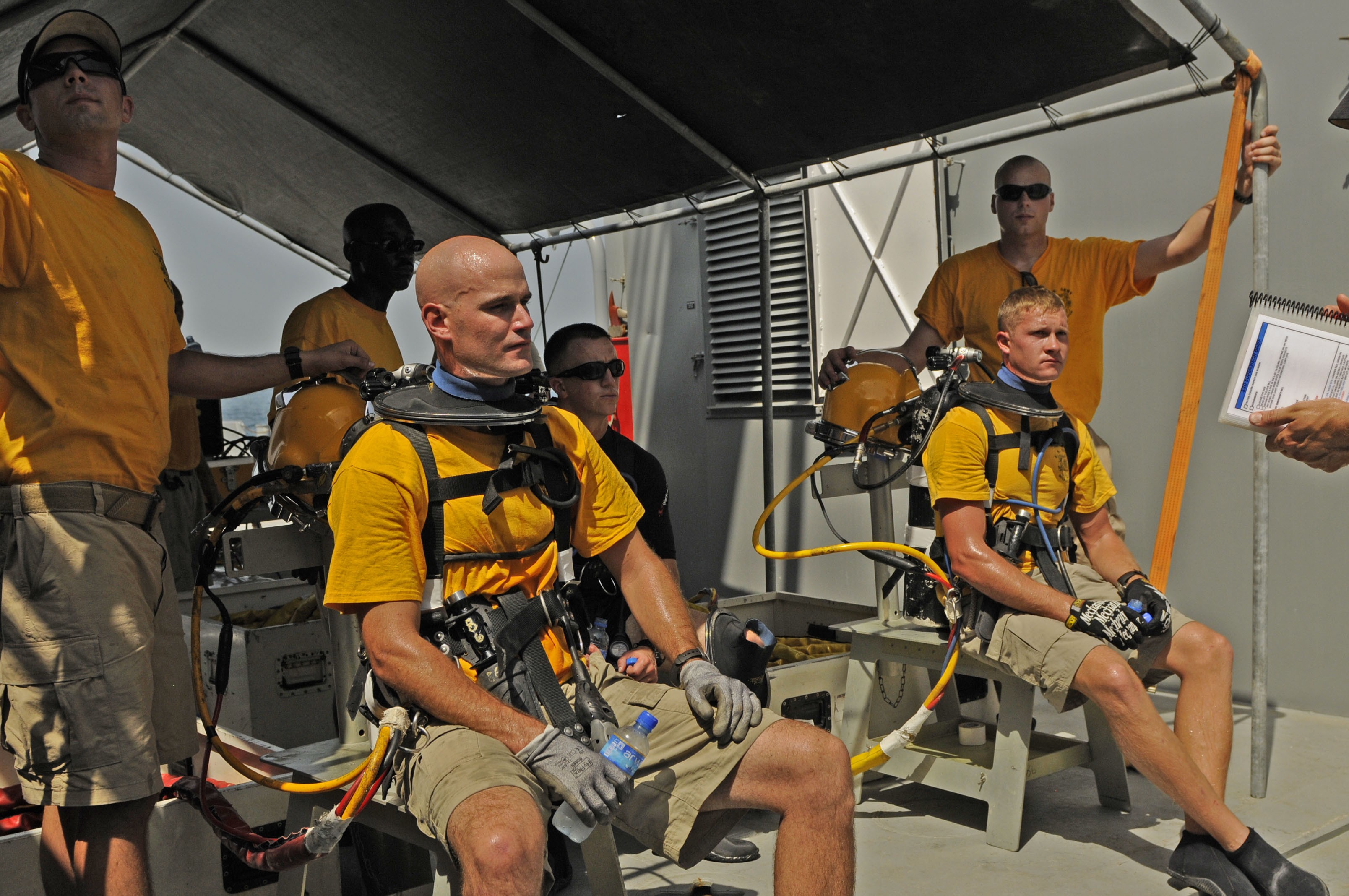
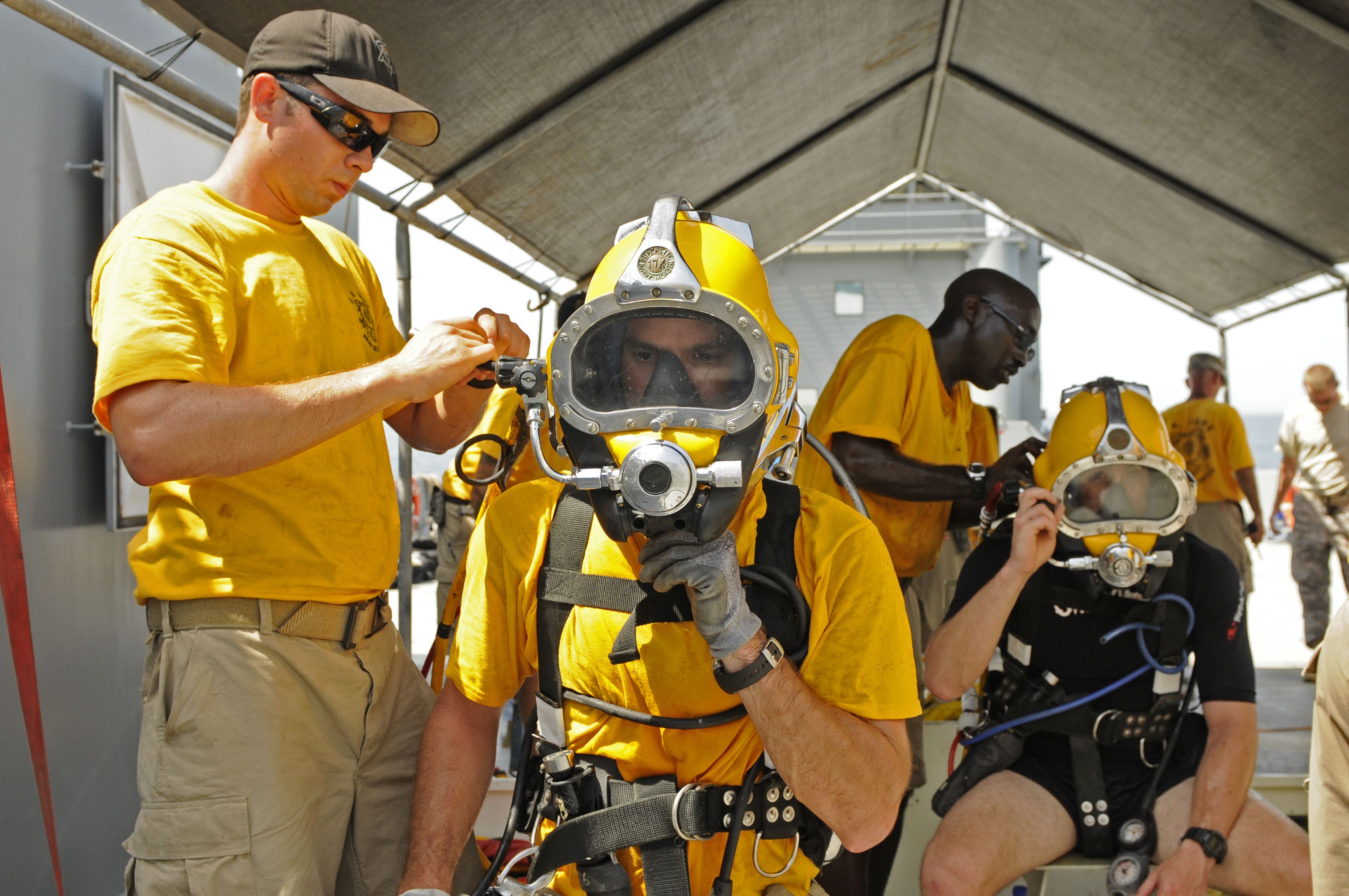
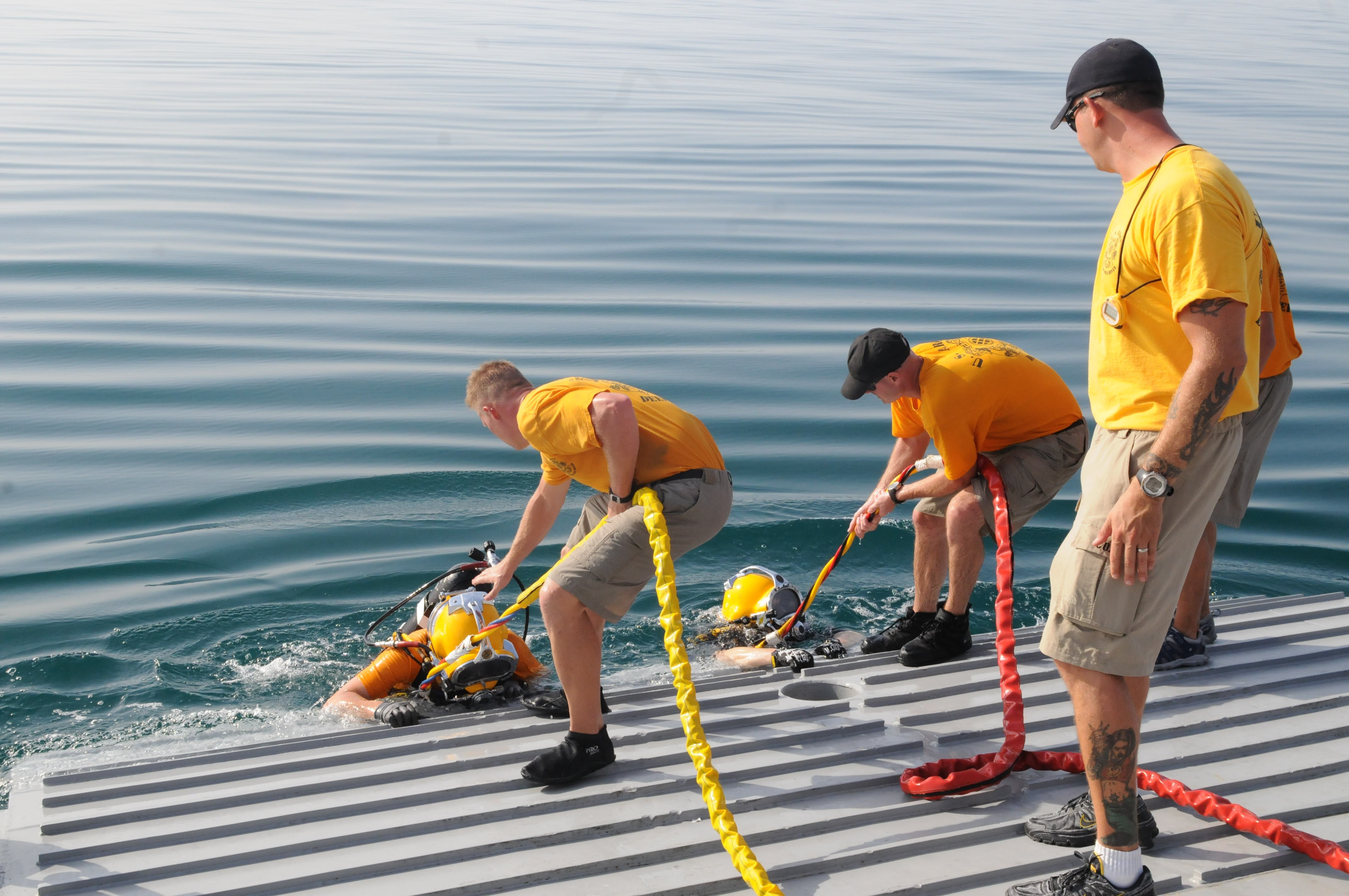
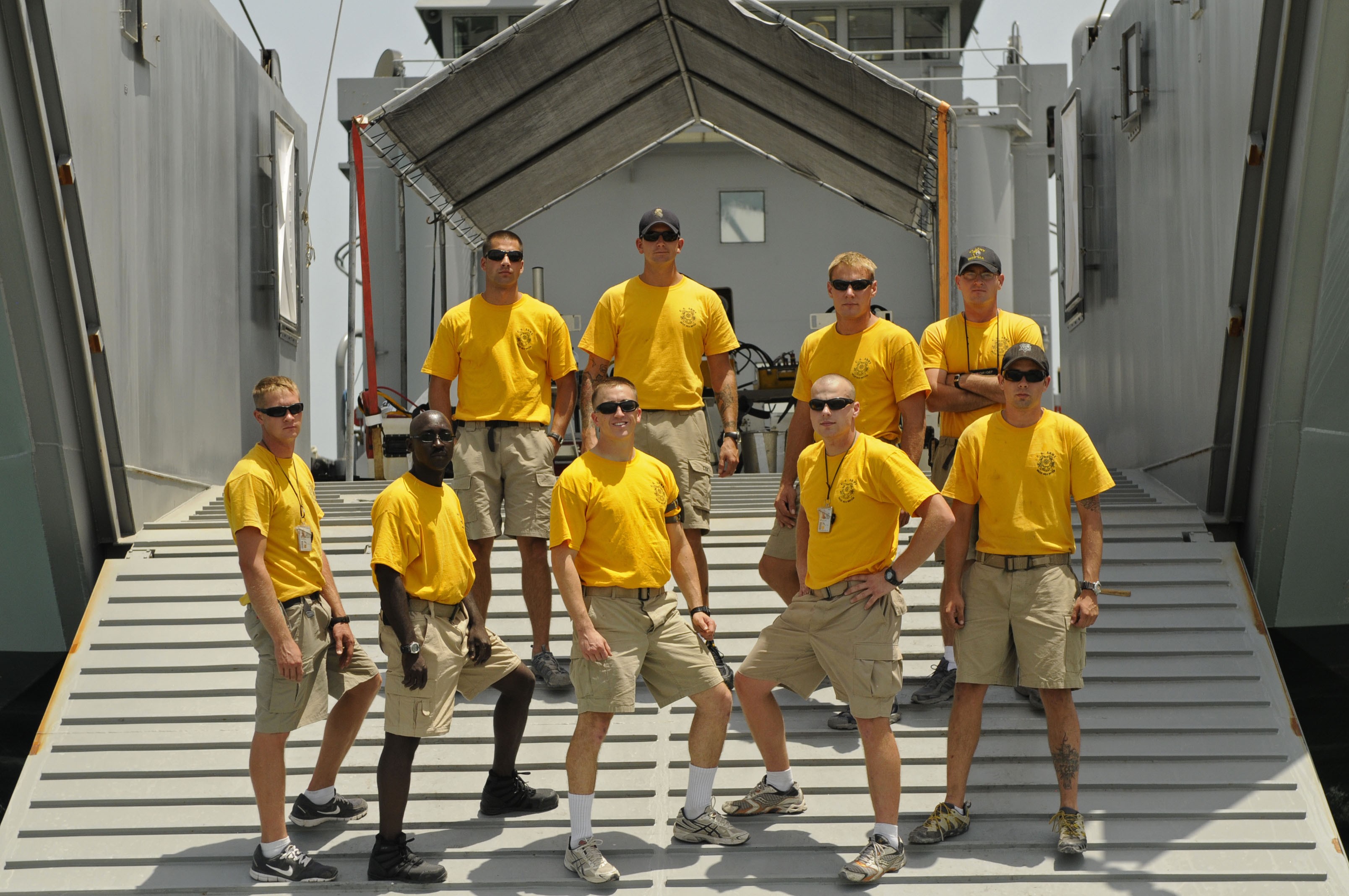
Social Sharing